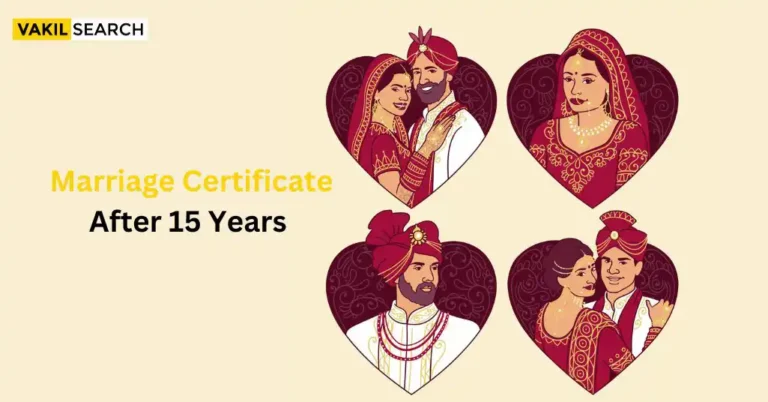The grounds for a marriage being declared void under Indian personal law vary, but generally speaking, a bigamous marriage, except those between Muslims, or a marriage performed within forbidden degrees of connection, is recognised as void under all personal laws.
Nullity of Marriage: Marriage is a sacred bond between a man and a woman, referred to as husband and wife. It is accepted and sanctioned by society and religion.
The Hindu Marriage Act of 1955, the Parsi Marriage and Divorce Act of 1936, and the Indian Christian Marriage Act of 1872 all give marriage legal validity in India. For some weddings, there is also the Special Marriage Act of 1954.
Even though marriage is a holy union that lasts a lifetime, there are legal grounds for ending or nullifying a marriage because of the complexity and upcoming changes in contemporary society. A court’s formal pronouncement that a marriage between two people never took place and that it was invalid is known as nullity of marriage. It is a proclamation that assumes marriage never had a place.
Differences Among Nullity of Marriage, Divorce and Judicial Separation
People occasionally mix up the terms “nullity of marriage,” “divorce,” and “judicial separation.” These three differ from one another.
Nullity of Marriage: An official judicial conclusion that a marriage did not exist is known as nullity of marriage. It is a reference to the legality of marriage. It denotes the absence of a legally binding union between the parties.
Divorce: Divorce is a legal decision made in response to a petition filed by the spouses that ended a legally binding union. While the continuity of marriage is impacted by divorce, the validity of the marriage is not called into question.
Judicial Separation: A legal declaration of separation from one another while maintaining marital status is known as judicial separation. Not the end of the marriage. Both obligations and liabilities to one another remain the same.
Nullity of Marriage for Hindus
Marriage is a crucial sanskar for Hindus, according to smritis. One has a responsibility to carry out this. Marriage was unbreakable and necessary for carrying out religious and spiritual duties. Prior to the parliamentary passage, Hindu personal law did not recognise the concept of an end to a marriage or the nullity of marriage; rather, marriage was regarded as a sacred union that would last a lifetime.
However, there are some grounds whereby a marriage can be deemed void after the Hindu Marriage Act of 1955 went into effect. These grounds are listed in The Hindu Marriage Act of 1955’s Section 5 under Clauses I (iv), and (v). The following are these grounds:
- If either partner is already married, this is known as bigamy.
- If norms and practise do not permit marriage between unrelated parties of a certain degree,
- If a marriage between sapindas occurs without the consent of custom and usage
- Under the Hindu Marriage Act of 1955, Sagotra marriage is legal.
Some marriages are voidable as well, which remain legitimate pending annulment. According to section 12 of the Hindu Marriage Act of 1955, a court order must declare voidable marriages null and void. The parties can choose to keep their marriage intact or dissolve it legally. Following are the grounds
- Impotence of a spouse
- Inability to offer informed permission, coerced consent from parties, mental illness, or being incompatible with child-bearing
- Premature marriage
- If the respondent was carrying a child at the time of the marriage by someone else.
Nullity of Marriage under the Special Marriage Law
Marriage certificate online registration can be deemed void under section 24 of the Act on the petition of either party by the decree of nullity on the grounds listed below:
- Both parties are single and unmarried.
- Due to mental disease, lack of soundness of mind, or being unsuited for childbearing, incapable of providing valid permission
- Parties have young guests
- Parties are related to an unlawful degree.
- Respondent’s impotence.
A few additional grounds can be used to declare a marriage voidable.
- Due to the respondent’s blatant refusal, marriage has not been consummated
- If the respondent was carrying a child at the time of the marriage by someone else
- Consent of either party was obtained by fraud or coercion as defined in the Indian Contract Act of 1872.
Interreligious marriages performed by the terms of this Act’s provisions are given legal status and security. Under the terms of this Act, any person, regardless of caste or religion, may get married.
Nullity of Marriage for Muslims
In contrast to Hinduism, where marriage is an indissoluble contract, Islam views marriage as a dissolvable union. Muslim personal law treats marriage as a contract, requiring the lawful assent of both parties and the determination of “mehar.”
Therefore, divorce is also acceptable in the Sunni and Shia sects. Personal law and the Dissolution of Muslim Marriage Act of 1939 declare that marriages without the parties or their guardian’s legitimate consent are null and void.
These reasons are listed below:
- The religious status of a woman’s interreligious marriage is non-existent. Additionally, a Muslim man is not permitted to wed a non-Islamite woman
- Marriage between close blood relations, also known as “maharim”
- Marriage to someone who rejects Islam or who does not believe in its tenets
- Sunni law declares null and void any temporary or conditional union
- Marriage to a female during the iddat period
- Where a marriage’s requirements go against Islamic law.
Nullity of Marriage for Christians
The status of marriage has changed as a result of the development of Christianity. Christian doctrine also recognises marriage as an unbreakable, holy union that should be celebrated publicly.
Consequently, it is challenging to declare a marriage null. However, separate marital law has been created due to social progress and efforts to end prejudice among Indian Christians.
The Indian Christian Marriage Act of 1872 was passed, while the Indian Divorce Act of 1869 was passed for cases when a marriage was declared null and void. 2001 saw the amendment of this Act. According to this Act, the following grounds can result in the annulment of a marriage:
- The respondent was infertile at the time of the marriage and filed the lawsuit
- Either party had a spouse who was still alive at the time of the marriage, known as bigamy
- Marriage between those who are too closely related or affine to be disallowed
- At the time of the marriage, either partner was mentally ill.
How to Obtain a Decree of Nullity Marriage?
The process for getting a decree of nullity of marriage is often the same throughout all areas of personal law. A petition for marriage annulment must be filed with the court. The place where the defendant or responder last resized together or where the marriage was solemnised determines the court’s jurisdiction.
The defendant or responder is then given notice by the court to respond in court. The court grants relief in accordance with the hearing and evidence. The term “court” in Parsi law refers to a court created by an Act. The Family Court or City Civil Court is under the Hindu Marriage Act of 1955 and the Special Marriage Act of 1954. By Islamic law, disputes are resolved through religious rituals rather than through the courts.
Conclusion
Marriages declared null and void release a person from the burdensome marriage. Both the reasons for declaring a marriage null and protecting religious beliefs are legal. It is a sacred religious ceremony in India and is necessary for the orderly operation of society. In all religions, it should be carried out without coercion and to preserve the family unit. Therefore, India likewise has the same grounds for declaring a marriage null. Vakilsearch has listed them for you. For more information, get in touch with us.
FAQs
How do you prove marriage nullity in India?
Evidence varies based on the grounds for annulment. It can include medical reports for impotency, proof of existing marriage, age documents for underage marriage, or documentation demonstrating a lack of consent or mental capacity.
What is the actual provision for nullity of marriage?
The applicable provisions depend on the personal law governing the marriage. For Hindu marriages, the Hindu Marriage Act (Section 11) dictates grounds for nullity. The Special Marriage Act (Section 24) applies to interfaith and inter-caste marriages, while the Divorce Act (Section 19) covers other situations.
What are the grounds for void marriage in India?
Void marriages are automatically considered invalid due to existing violations of essential conditions. These include bigamy, underage marriage, prohibited relationships, unsound mind, and lack of consent.
Is there a limitation period for nullity?
No specific limitation period exists for nullity petitions. However, delays may invite potential challenges.
What is the Supreme Court decision on nullity of marriage?
Supreme Court rulings have addressed various aspects of nullity, including interpretations of grounds, burden of proof, and procedural aspects. Some notable examples include Yamunabai v. Anant Rao, wherein the court held that a second wife is not a wife because the second marriage is void ab initio.










